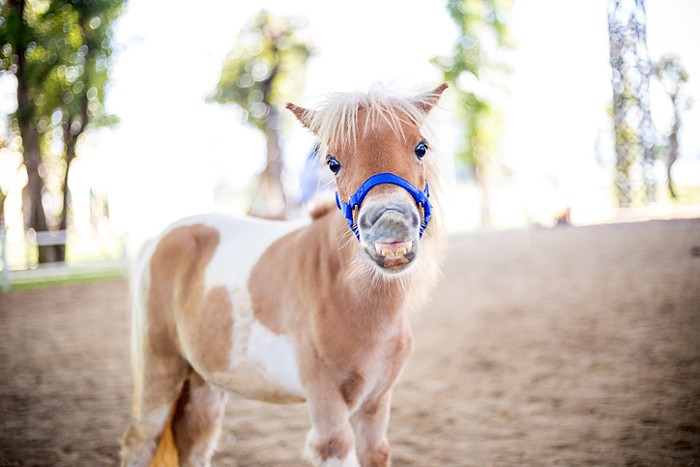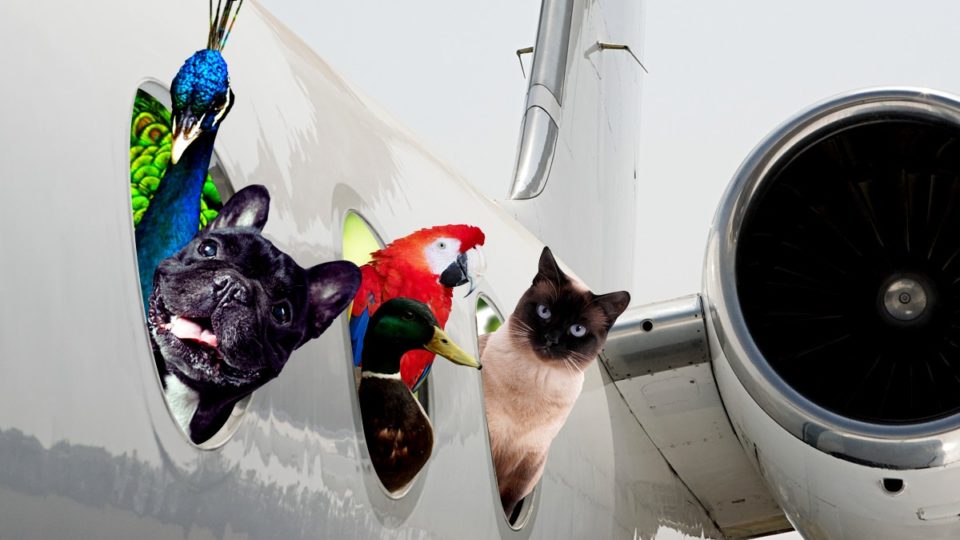The phrase “when pigs fly” could become a reality in the near future but for now, flying livestock will be restricted to miniature horses, according to new service animal policies that went live last month.
American Airlines announced the new policies in light of an increasing trend of passengers who prefer to fly with their support pets. To that end, fully-trained service animals and emotional support / psychiatric service animals may fly in the cabin at no charge if they meet the requirements. Those requirements are:
* One emotional support or psychiatric service animal per person
* Animal must be a cat or a dog or a trained miniature horse
* Animal must be clean and well-behaved
* Animals must be able to fit at your feet, under your seat or in your lap (lap animals must be smaller than a 2-year old child)
* If the animal is in a kennel, it must fit under the seat in front of you with the animal in it
Meanwhile, these animals cannot:
* Be seated in an exit row
* Protrude into or block aisles
* Occupy a seat
* Eat from tray tables

American Airlines stressed five points on the matter:
- American supports the rights of customers, from veterans to people with disabilities, with a legitimate need for a trained service or support animal. Unfortunately, untrained animals can lead to safety issues for team members, customers and working service and support animals onboard aircraft.
- American surveyed 10,400 team members and 18,000 customers about these issues and used their feedback to enact these new policies. The results of this survey, along with additional comments from the airline, were submitted to the U.S. Department of Transportation.
- Effective for travel on or after April 1, a traditional service animal may be a dog, a cat or, in some limited circumstances, a miniature horse. Emotional support animals are limited to either a dog or cat only; a customer may only bring one emotional support animal onboard aircraft.
- American will require a Veterinary Health Form, along with immunization details, for emotional support animals. Details regarding all of these updated changes and forms, as well as the advanced notice and pre-clearance policy, are available here.
- Animals under four months of age will no longer be permitted to travel as service or support animals. Animals under this age usually have not received the necessary vaccinations that protect team members and customers.
Alaska Airlines is also reviewing its support animal pet policies following a lawsuit launched after a 5-year-old girl was allegedly mauled by a pit bull at the airline’s gate in Portland in 2017. The $1.1 million suit was filed in late February.
Delta Air Lines also saw a pit bull attack incident unravel in recent years as a passenger was mauled by another passenger’s support pet. Delta said in a news report about the incident that it carries about 700 service or support animals daily, or nearly 250,000 annually — up 150 percent since 2015. The airline noted an 84 percent increase in animal incidents since 2016.
Last year, United Airlines caught attention for refusing to allow a support peacock to board. Delta Air Lines might have had a different take as peacocks, the airline reasoned, could not be classified as farm poultry and, although exotic for a pet, could not be ruled out as a support animal.
To find out the latest in pet policies on American carriers, here is a list of links that will assist.
































































































































































































































































































Get Social